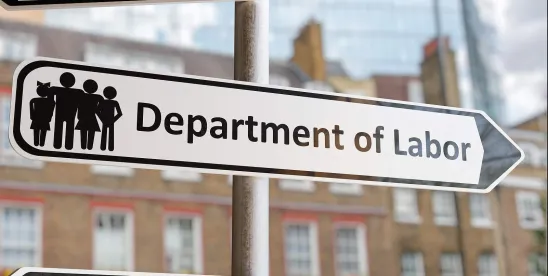The Department of Labor’s (DOL) Final Rule increasing the salary threshold for certain exempt workers is facing multiple legal challenges (as widely anticipated). As the July 1 effective date of the salary changes looms, there are currently two lawsuits in the U.S. District Court for the Eastern District of Texas that have challenged the rule as exceeding the DOL’s authority.
At issue is the department’s April 23 Final Rule which increased the salary threshold for employees to qualify as exempt from overtime under the Fair Labor Standards Act (FLSA). In order to qualify for most “white-collar” exemptions under the FLSA, employees must satisfy a two part test: (1) the employee’s job duties must qualify for a specific exemption and (2) the employee’s salary must meet a minimum threshold.
If either of the two parts of the test are not met, the employee is not exempt and must be paid overtime for hours over 40 per week. On April 23, 2024, the DOL issued a Final Rule which raises the salary threshold for so-called “white collar” exempt workers from $684/week to $844/week as of July 1, 2024, and again to $1,128/week on January 1, 2025. The rule also changed the salary threshold for “highly compensated” exempt employees from $107,432/year to $132,964/year on July 1, 2025, and to $151,164/year on January 1, 2025.
The DOL anticipates that the rule will impact four million workers by 2025.
As employers grapple with whether to reclassify affected employees as non-exempt or raise salaries to remain exempt, two legal challenges have been filed, adding even more complexity to the choice. It is no coincidence that both cases have been filed in the Eastern District of Texas, where a similar 2016 DOL rule that sought to increase the salary threshold was stuck down in 2017. The first case challenging the rule was filed by the Plano Chamber of Commerce and several business associations on May 24, 2024. The plaintiffs in that case argue that the DOL rule is impermissible because its focus on the salary portion of the exemption test “effectively eliminates the duties test.” It requested expedited consideration of the Complaint given the impending deadline.
The second lawsuit was filed on June 3, 2024, by the Texas Attorney General. In conjunction with the complaint, the Texas AG filed a motion for a temporary restraining order requesting that the court immediately halt implementation of the rule. Similar to the Plano Chamber of Commerce case, the Texas Attorney General argues that the DOL has exceeded its authority in issuing the rule. A hearing on this motion will take place on June 24, 2024 — just one week prior to the July 1, 2024, effective date of the rule.
Finally, a case in the federal Fifth Circuit Court of Appeals — challenging the similar 2016 DOL rule — remains pending. That case argues that the DOL does not have the authority to implement a salary requirement at all for overtime exemptions. If the court agrees with the plaintiffs, the decision will have implications for the 2024 rule as well.
Given that the new rule comes into effect in just a few short weeks, employers should be well on their way to planning for its implementation. Specifically, if an employer has any exempt employees who will fall below the new July 1 or January 1 salary thresholds, it must make a choice to either reclassify the employee as non-exempt or raise the employee’s salary. This planning should continue despite the ongoing legal challenges to the rule to ensure that employers are ready to execute the required changes if there is no court action to halt the rule’s implementation.
However, it is wise for employers to monitor the pending challenges and remain nimble in case a court decision prevents the rule from being implemented. As a result, while employers should continue planning, they should also consider holding off on communication of any possible change until there is clarity regarding what salary threshold will be in place on July 1, 2024.




 />i
/>i

